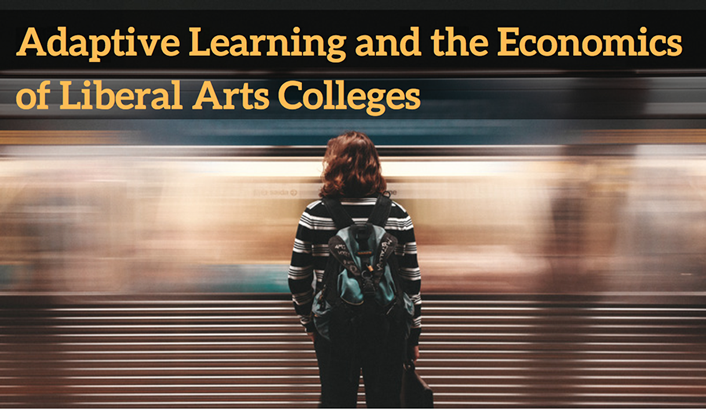
A Gap in Knowledge
Small residential liberal arts colleges use an operational model with a lot of moving parts. This structure is complex, requiring attention to detail and a deep knowledge of organizational finances and how they intersect. Understanding the interactions of endowments, major gifts, facilities, and human capital is something that is not taught. This development disconnect creates an unrealistic expectation of faculty and staff serving on various institutional committees dealing with budgets and strategic decision-making. The Institute on College Futures Online (ICF Online), a professional development mini-course on the economics of small liberal arts campuses, was developed to fill the gap and better prepare faculty and staff for these committee roles.
They Do What?
When I joined the Associated Colleges of the Midwest (ACM) in 2014, I found myself working with 14 small liberal arts colleges with rich traditions in exceptional teaching and learning. As someone new to this environment, I was asked to review videos from a professional development series called the Institute on College Futures from the perspective of a novice. Of course, this is the polite way of saying I knew very little about the economics of higher education and even less (practically nothing) about the small liberal arts college economic model. Through this process, I learned a great deal about the following topics:
- The quantity versus quality debate
- Endowments and their relationship to the college
- Discount rates and merit aid (The importance of Game Theory)
- Anti-trust law influence in higher education
- How specific components of the budget interact and the impact they have on one another
However, what I learned by watching these videos was minimal compared to the knowledge gained by participating in creating an adaptive online version of the professional development series called ICF Online. As a technologist and project leader, I was fortunate to learn more about each topic from content experts, learning engineers, and other technologists. At the same time, they helped further enhance my knowledge of the backwards design process, accessibility, and collaboration.
Focused on Learning
ICF Online was created using a backwards design process. Experts including a dean, two economics professors, and a chief financial officer were drawn from Lake Forest College, Colorado College, Beloit College, and Macalester College. This group met in Chicago with educational technologists from each of their institutions, ACM staff, and learning engineers from Acrobatiq, an online adaptive learning platform, to explore the proper learning objectives, skills, and related activities to enhance learning and engagement.
The overall goal of the course was to create as close to a seminar style feel as possible. Some of the mediums used to engage learners included:
- Video presentations — Faculty and administrators provide introductions and enhance text to reinforce key learning objectives of the course.
- Narrative content — Created by economics faculty, deans, and chief financial officers at ACM colleges, the narrative contextualizes the conversation to the liberal arts model.
- Activities and questions — Each question or activity in the course is designed to offer expert feedback and guidance, while helping to create an individual learning estimate.
- Screencasts — These are guided walkthroughs of the financial model budget template created by the content experts.
- Individual dashboard — This is a mechanism enabling the person taking the course to see personalized successes and challenges for individual learning objectives and activities.
- Accessibility — The course is compliant with Section 508 of the Rehabilitation Act of 1973, as amended in 1998, for accessibility.
In addition to creating this structure, our project group knows it's important to continuously improve the course. Each learner completing the course can provide detailed feedback on each learning objective, module, and activity type. We will use this information to improve the course on a regular basis.
Looking Toward the Future
Adaptive learning is still in its infancy and there are many views as to its value. Although the Open Learning Initiative was founded in 2001, scalable attempts at providing adaptive resources, such as Acrobatiq, Cerego, CogBooks, Lumen Learning, Rice University OpenStax, Smart Sparrow are still relatively new to the conversation. However, when you think about the possibilities surrounding instant feedback, accessibility, personalization, and portability, the long-term implications of adaptive learning could prove to be a valuable tool. At the ACM, we started with a professional development opportunity to address an institutional need. Imagine what a professor can do in a classroom with real time information on how students learn.
If you would like more information about the ICF Online course as well as links to some of the videos and resources used in the course, please click on the following link: acm.edu/ICFOnline
Ed Finn is Liaison for Innovation and Collaboration in Teaching and Learning at Associated Colleges of the Midwest; LinkedIn: https://www.linkedin.com/in/edward-finn-iii-msed-8563498/; Twitter: @acmtechliaison
